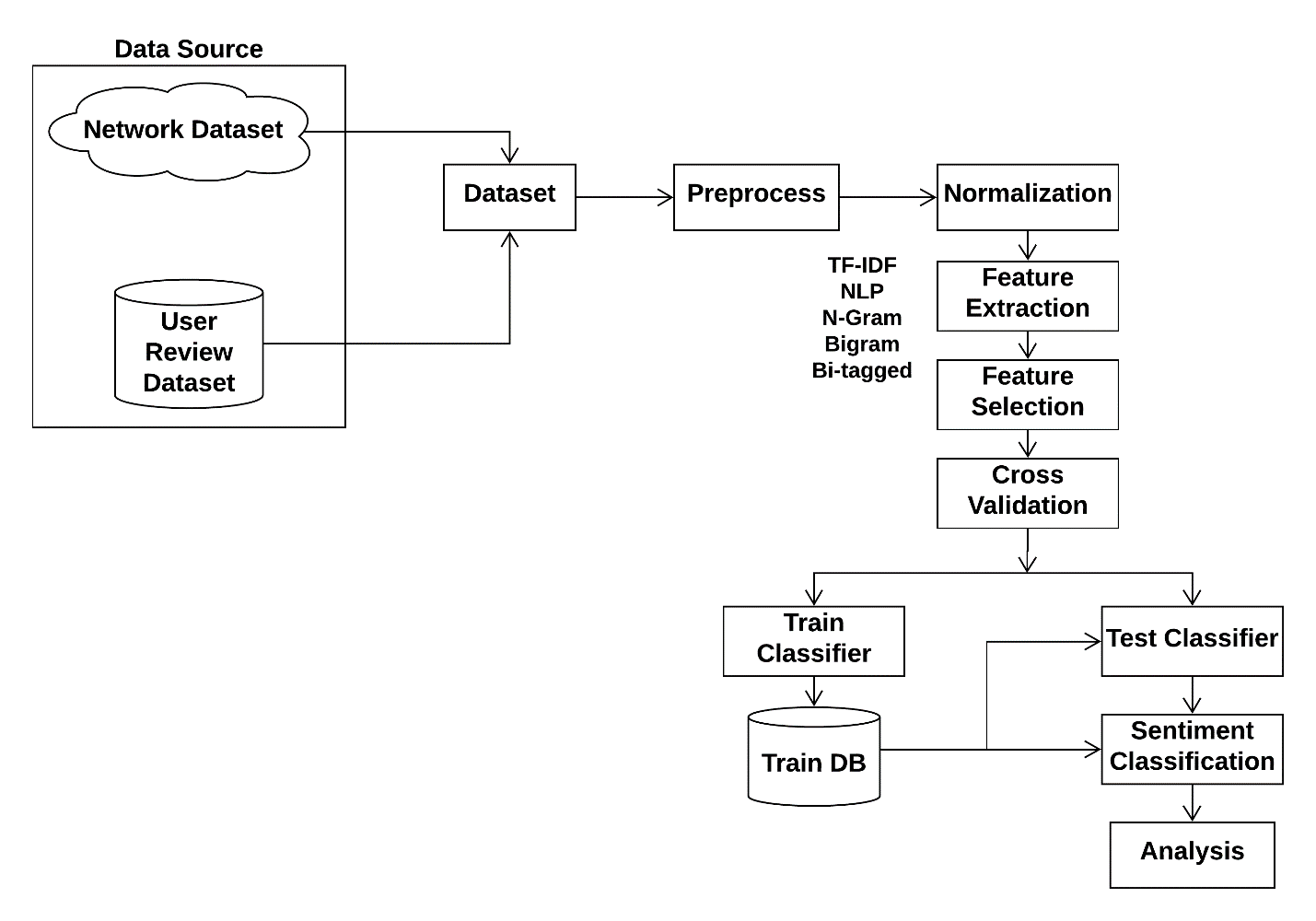Hybrid Feature Selection Techniques for Aspect based Sentiment Classification using Supervised Machine Learning
Keywords:
Supervised machine learning, aspect identification, sentiment classification, Natural language processing, stomer review datasetAbstract
Sentiment Analysis comprises a variety of tasks, including subjectivity detection, polarity detection, sentiment magnitude detection, and emotion type recognition. The text is assessed as subjective in the subtask of subjectivity detection. Words and phrases' subjective nature vary based on their context; an objective text may include subjective observations. For example, news reports include quotations from people's viewpoints. In this paper, we proposed an aspect-based sentiment classification using machine learning techniques on a customer review dataset. The real-time customer review dataset has been considered for the identification of aspects and later for the classification of sentiment. The various feature extraction and selection techniques have been carried out for unique module building, while numerous machine learning (ML) classification algorithms have been used for the classification of aspects as well as the sentiment. Several machine learning (ML) classification techniques such as artificial neural network (ANN), RF (Random forest), Naïve Bayes (NB) and SVM (support vector machine) have used for both classifications. The three feature extraction techniques have been used during the implementation such as TF-IDF, Bigram as well as NLP features. In an extensive experimental analysis, SVM obtains better results with NLP features over other machine learning classifiers.
Downloads
References
Cambria, E. Affective Computing and Sentiment Analysis. IEEE Intell. Syst. 2016, 31, 102–107.
Kaur, A.; Kaur, K. Statistical Comparison of Modelling Methods for Software Maintainability Prediction. Int. J. Softw. Eng. Knowl. Eng. 2013, 23, 743–774.
Al-Ghuribi, S.M.; Noah, S.A.M.; Tiun, S. Unsupervised Semantic Approach of Aspect-Based Sentiment Analysis for Large-Scale User Reviews. IEEE Access 2020, 8, 218592–218613.
. Hepburn, J. Universal Language model fine-tuning for patent classification. In Proceedings of the Australasian Language Technology Association Workshop, Dunedin, New Zealand, 11–12 December 2018; pp. 93–96.
Katwe, P.; Khamparia, A.; Vittala, K.P.; Srivastava, O. A Comparative Study of Text Classification and Missing Word Prediction Using BERT and ULMFiT. In Evolutionary Computing and Mobile Sustainable Networks; Springer: Berlin/Heidelberg, Germany, 2021; pp. 493–502.
Shu, K.; Bhattacharjee, A.; Alatawi, F.; Nazer, T.H.; Ding, K.; Karami, M.; Liu, H. Combating disinformation in a social media age. Wiley Interdiscip. Rev. Data Min. Knowl. Discov. 2020, 10, e1385.
Jakkula, V. Tutorial on support vector machine (svm). Sch. EECS Wash. State Univ. 2006, 37, 121–167.
Suthaharan, S. Support vector machine. In Machine Learning Models and Algorithms for Big Data Classification; Springer: Berlin/Heidelberg, Germany, 2016; pp. 207–235.
Pisner, D.A.; Schnyer, D.M. Support vector machine. In Machine Learning; Elsevier: Amsterdam, The Netherlands, 2020; pp. 101–121.
Hope, T.; Resheff, Y.S.; Lieder, I. Learning Tensorflow: A Guide to Building Deep Learning Systems; O’Reilly Media, Inc.: Sebastopol, CA, USA, 2017.
Tarasov, D. Deep recurrent neural networks for multiple language aspect-based sentiment analysis of user reviews. In Proceedings of the 21st International Conference on Computational Linguistics Dialogue, Sydney, NSW, Australia, July 2015; Volume 2, pp. 53–64.
Tai, K.S.; Socher, R.; Manning, C.D. Improved semantic representations from tree-structured long short-term memory networks. arXiv 2015, arXiv:1503.00075
Zhang, J.; Cui, L.; Fu, Y.; Gouza, F.B. Fake news detection with deep diffusive network model. arXiv 2018, arXiv:1805.08751. 3
Rani, S.; Singh, J. Sentiment analysis of Tweets using support vector machine. Int. J. Comput. Sci. Mob. Appl. 2017, 5, 83–91
Saikat Bose, Tripti Arjariya, Anirban Goswami, Soumit Chowdhury Multi-Layer Digital Validation of Candidate Service Appointment with Digital Signature and Bio-Metric Authentication Approach International Journal of Computer Networks & Communications (IJCNC) Vol.14, No.5, September 2022 DOI: 10.5121/ijcnc.2022.14506

Downloads
Published
How to Cite
Issue
Section
License
Copyright (c) 2023 Ganesh N. Jorvekar, Tripti Arjariya, Mohit Gangwar

This work is licensed under a Creative Commons Attribution-ShareAlike 4.0 International License.
All papers should be submitted electronically. All submitted manuscripts must be original work that is not under submission at another journal or under consideration for publication in another form, such as a monograph or chapter of a book. Authors of submitted papers are obligated not to submit their paper for publication elsewhere until an editorial decision is rendered on their submission. Further, authors of accepted papers are prohibited from publishing the results in other publications that appear before the paper is published in the Journal unless they receive approval for doing so from the Editor-In-Chief.
IJISAE open access articles are licensed under a Creative Commons Attribution-ShareAlike 4.0 International License. This license lets the audience to give appropriate credit, provide a link to the license, and indicate if changes were made and if they remix, transform, or build upon the material, they must distribute contributions under the same license as the original.





